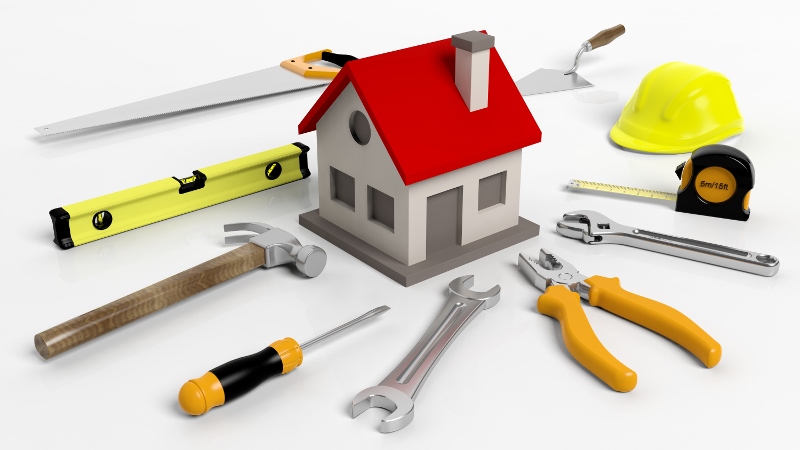Both buyers and sellers have good reasons to know the basics of home inspection. For sellers, a pre-inspection can help them anticipate any home maintenance issues that might arise during the selling process. Buyers will find it helpful to learn how to perform a DIY inspection of a home. This is especially true if the market is competitive.
It is helpful to be able to identify the questions you should ask, even if you hire a professional inspector. A home inspection contingency clause can help you ask the seller for any updates.
Are you looking for background-checked home inspectors?
HomeAdvisor can help you find qualified professionals who will inspect your home. Get instant quotes or book instantly from top-rated pros near me.
Explore Your OptionsWhat is a home inspection?
A home inspection should be thorough and objective. It should examine all major components of the property, including the foundation, walls and heating and cooling systems, electrical system and plumbing system. A home inspection does not require the use of any tools. You will need to consult a specialist expert such as a plumber or electrician if there are any concerns.
You should be familiar with the best practices for professional home inspectors if you’re performing your own inspection. You should remember that not all homes are perfect and finding issues during a home inspector in Gadsden, AL shouldn’t be considered a deterrent. A home inspection can give you more information about the condition of your home.
Guide to Home Inspection
Professional inspectors can provide guidance if you choose to inspect your home prior to listing it for sale. A 4-Point Inspection will inspect the roofing, electrical, plumbing, and HVAC systems.
You will have to limit your access to a home you are considering buying. You won’t be allowed to climb onto the roof, for example. You can, however, still inspect a room from the ground to get an idea of its condition.
An inspection of the entire property will include the exterior, interior, insulation, ventilation, fireplace, and any other pertinent parts, such as an inground pool.
How to hire a home inspector
A majority of home inspectors adhere to a set of guidelines. When reviewing potential home inspectors, it is important to consider their experience and reputation. You should inquire about the qualifications, experience, availability, and turnaround time of potential home inspectors when you are looking to hire them. Because of the limited time frame in which you can get a home inspector, it is important to be punctual with home inspections.
How to determine if a home inspector is qualified
The state requirements for home inspection licenses and certifications may vary. California, for example, does not have any licensing requirements for home inspectors. In Arizona, home inspectors must have completed 84 hours of education, 34 parallel inspections, passed an exam, cleared a background check, and have insurance coverage. No matter what state has for inspectors, it is important to find one who can answer all your questions, have experience, and can provide proof of their expertise.
Questions to ask a home inspector
Recommendations and reviews can be very helpful when searching for a home inspection. A realtor may be able recommend a few home inspectors to you. You can also use recommendations and reviews from friends and family to narrow down your search.
After you have selected a few candidates, it is time to ask:
- Are you insured and licensed?
- How was your experience?
- Do you have a specific date that you are available?
- What guidelines should you use to inspect?
- Is there a flat fee?
- Do you offer additional inspection services?
Get Quotes from Top-Rated House Inspection Services Contractors
Free, No-commitment Estimates
Locate an Inspector
What is the cost of home inspections?
The national average cost of a complete home inspection ranges from $300 to $500. The average cost of a 4-Point Inspection, which covers roofing, plumbing and electrical, is $100 to $200. The size and location of your home will also impact the cost of your home inspection. You may need to pay an additional fee to inspect your pool, septic system, or radon system. Other professionals are often able to provide specialized services such as soil, lead, mold, and pest inspections.





